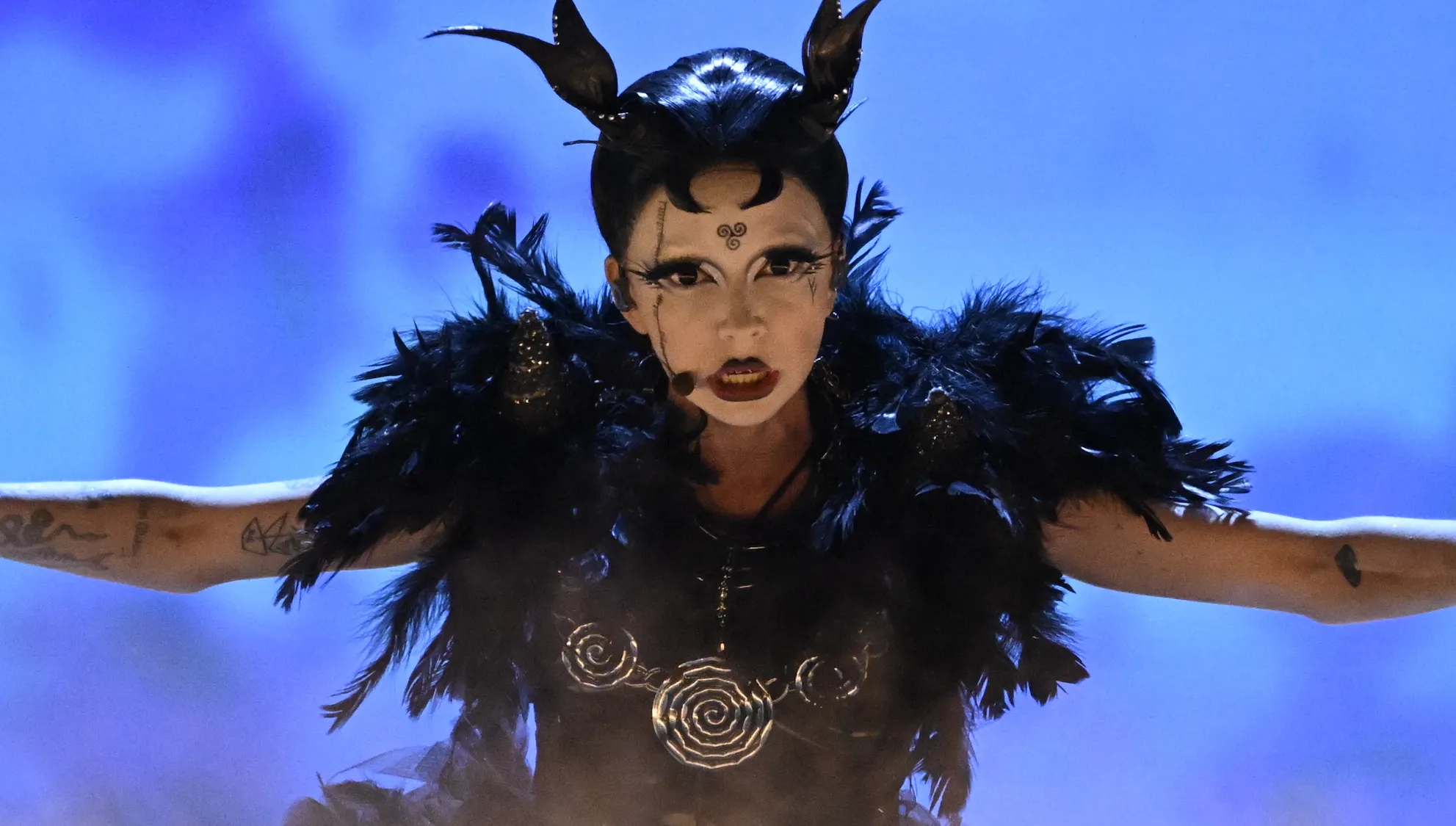Eurovision’s Bambie Thug says EBU forced them to change pro-Palestine outfit
Sign up for more LGBTQ+ news and updates at TrueQueer.
In a shocking turn of events at this year’s Eurovision Song Contest, Ireland’s entrant Bambie Thug has accused the European Broadcasting Union (EBU) of censoring their message of solidarity with Palestine. Bambie Thug, a non-binary singer, made headlines with their performance of “Doomsday Blue” and their outfit adorned with a trans Pride flag during the semi-final round on May 7.
Reports emerged that Bambie Thug had initially planned to display the words ‘Ceasefire’ and ‘Freedom for Palestine’ in the ancient Celtic alphabet Ogham on their costume. However, just before their performance, the EBU allegedly demanded that these messages be removed. Bambie Thug complied with the EBU’s request and replaced the messages with ‘Crown the Witch’ as per their instructions.
The EBU defended their decision by stating that the messages violated the contest rules that aim to maintain the non-political nature of the event. Despite the controversy, Bambie Thug managed to secure a spot in the Eurovision final, marking the first time an Irish act has made it to the final since 2018.
Following the incident, Bambie Thug took to social media to express their disappointment at having to alter their outfit. They emphasized the importance of standing up for justice and peace, indicating that withdrawing from the contest would silence a pro-Palestinian voice on such a prominent platform.
In solidarity with Bambie Thug, several other Eurovision 2024 contestants, including Olly Alexander from the UK, signed a joint statement calling for peace, a ceasefire, and the safe return of hostages in the occupied Palestinian territories. The statement highlighted the unifying power of music in fostering meaningful conversations and connections, urging greater compassion and empathy.
Olly Alexander, who is set to perform the UK’s entry “Dizzy” at Eurovision, addressed the controversy surrounding the event in a BBC documentary. He acknowledged the complexity of the political situation but defended his decision not to withdraw from the competition despite facing accusations of complicity in genocide.
As the Eurovision Song Contest continues, fans eagerly anticipate the second semi-final airing on Thursday, May 9, and the final scheduled for Saturday, May 11. The controversy surrounding Bambie Thug’s performance has sparked important conversations about freedom of expression and political activism in the realm of music and entertainment.
Overall, Bambie Thug’s experience at Eurovision 2024 serves as a reminder of the power of art and music in amplifying marginalized voices and advocating for social justice causes on a global stage. The incident sheds light on the challenges faced by artists who use their platform to speak out against injustice and oppression, even in the face of censorship and controversy.
Follow us on: Facebook for more LGBTQ+ news and updates at TrueQueer.
Eurovision’s Bambie Thug
![]()

